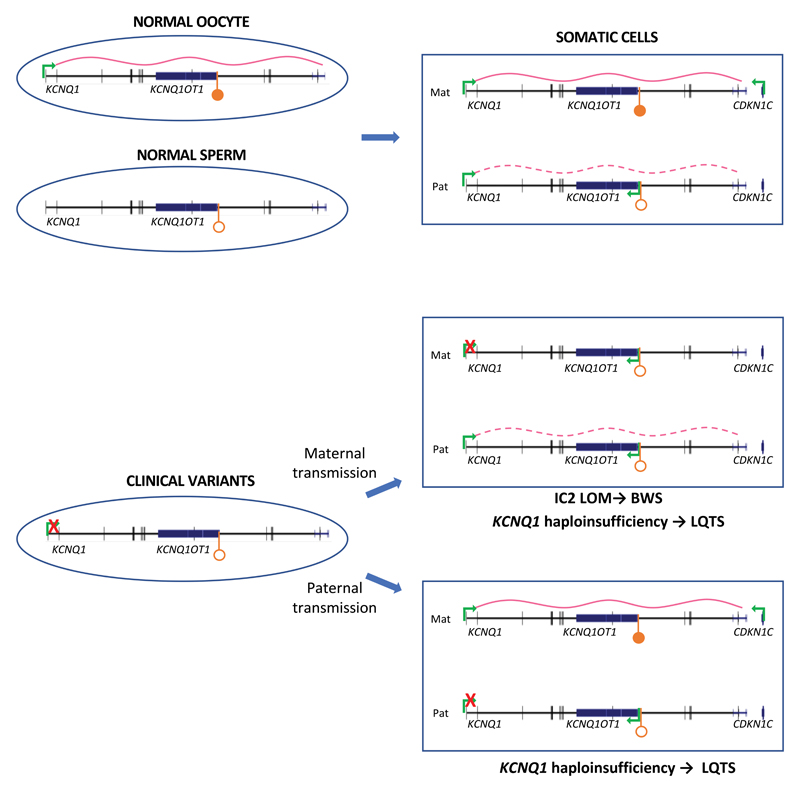Figure 5. Model of how a single genetic KCNQ1 variant may determine both LQTS and BWS.
In the female germline, the KCNQ1 promoter drives a transcript across IC2, which is required for de novo methylation of this ICR. Differential IC2 methylation regulates KCNQ1OT1 and CDKN1C imprinting in somatic cells. Genetic variants causing loss or premature termination of KCNQ1 transcription result in i) BWS due to defective IC2 methylation establishment, biallelic KCNQ1OT1 expression and CDKN1C silencing, and LQTS due to KCNQ1 haploinsufficiency, on maternal transmission; ii) LQTS due to KCNQ1 haploinsufficiency on paternal transmission. Active promoters and transcription orientation are indicated by bent green arrows. Methylated IC2 is indicated by filled lollipop, unmethylated IC2 by open lollipop. The KCNQ1 transcript is depicted as a pink curved line. The dashed curved line indicates the paternal KCNQ1 transcript that is expressed in heart and adult tissues and imprinted in embryo. Genetic variants causing loss of KCNQ1 transcription are indicated by a red cross. The KCNQ1 gene is represented non-imprinted in somatic cells, according to the results obtained in blood leukocytes.

